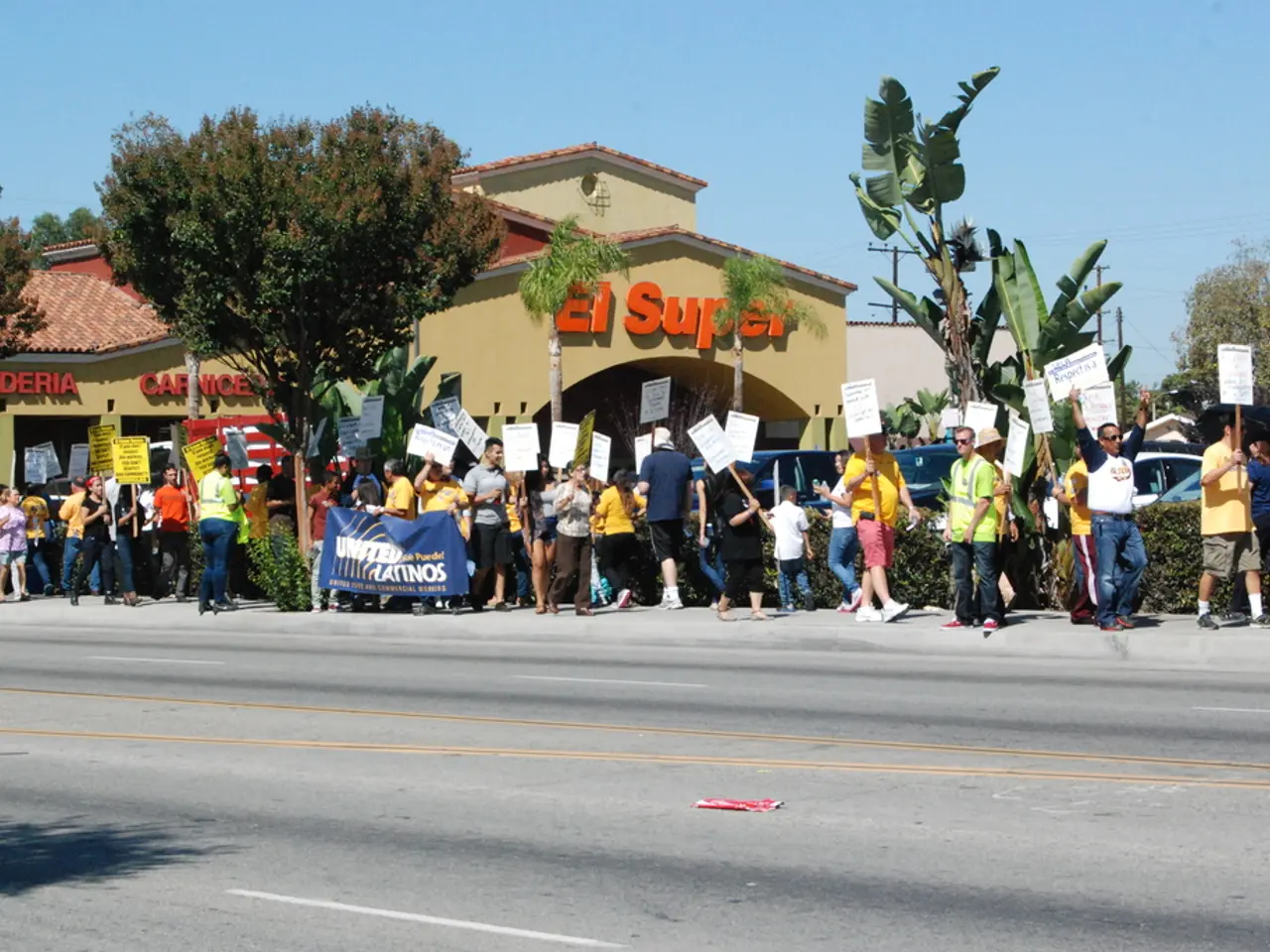Hearing on Potential Inhibition of 'Alligator Alcatraz' Due to Environmental Protestations
In the heart of the Florida Everglades, the controversial migrant detention center known as Alligator Alcatraz has found itself under legal scrutiny. The facility, located next to ecologically sensitive and protected areas such as the Big Cypress National Preserve and the Big Cypress Area, has been temporarily halted by a federal judge due to concerns about potential environmental violations [3].
The detention center, built on the grounds of the Dade-Collier Training and Transition Airport, has been swiftly constructed over a matter of weeks, a fact that has raised eyebrows among environmental groups and the Miccosukee Tribe of Indians, who have filed lawsuits arguing that the facility was built without the necessary environmental impact statements mandated under the National Environmental Policy Act (NEPA) [2].
The plaintiffs contend that the rapid construction and operations of the facility disrupt wildlife, natural terrain, and sacred tribal lands. They argue that the government's failure to seek public input on the project has only compounded their concerns [2][4].
Conservation groups emphasize that agencies involved, including the Department of Homeland Security (DHS), Immigration and Customs Enforcement (ICE), Federal Emergency Management Agency (FEMA), and the Florida Division of Emergency Management, have bypassed NEPA and other environmental legal requirements, such as the Endangered Species Act (ESA) and Clean Water Act (CWA), leading to potential environmental harm [4].
Despite the halt in construction, the facility continues to operate, detaining migrants unless a judge rules otherwise. On August 7, 2025, U.S. District Judge Kathleen Williams issued a temporary two-week halt to construction at Alligator Alcatraz to consider whether the facility violates environmental regulations [3]. Wednesday's hearing is limited to environmental issues, including impacts on the nearby Big Cypress National Preserve, and could result in a federal judge ordering the facility to be shut down until the required environmental impact studies are conducted.
Florida state Rep. Anna Eskamani testified that the DHS was the driving force behind the facility's construction. During a guided tour, Florida Division of Emergency Management Executive Kevin Guthrie allegedly stated that Alligator Alcatraz was built at the direct request of the DHS [5].
The Department of Justice has argued that the environmental groups cannot prove irreparable harm and that the National Environmental Policy Act (NEPA) does not give a court the power to block the use of the facility [6]. Attorneys representing the Florida officials have cast doubt on Rep. Eskamani's testimony regarding the facility being a "half-billion-dollar anti-immigrant grift" [6].
The Miccosukee Indian Tribe joined the lawsuit last month, arguing that the facility threatens to damage nearby tribal villages [1]. Immigrant advocates have alleged that detainees have endured inhumane conditions, including flooded facilities, spoiled food, and sweltering heat, and have limited access to their attorneys, effectively being housed in a jurisdictional "black hole" [7].
The environmental groups are attempting to prove that the facility was built without federally required impact studies. The facility's operation in a jurisdictional gray zone, with the facility funded by the federal government but run by the state of Florida, allegedly allows officials to skirt some legal requirements [8].
As the legal battle continues, the future of Alligator Alcatraz remains uncertain. The temporary halt in construction serves as a reminder of the complex interplay between environmental concerns, migrant welfare, and political interests.
References:
- Miami Herald
- The Guardian
- CNN
- NBC News
- Associated Press
- The Hill
- Human Rights Watch
- The New York Times
- The controversy surrounding Alligator Alcatraz, an international politics topic, has led to legal scrutiny, with environmental groups and the Miccosukee Tribe of Indians filing lawsuits over potential environmental violations.
- The detention center, located in the Florida Everglades alongside ecologically sensitive areas, has been temporarily halted due to concerns about its effects on the environment and wildlife.
- Conservation groups argue that agencies involved bypassed the National Environmental Policy Act (NEPA) and other environmental legal requirements, leading to potential environmental harm and the disruption of natural terrain and tribal lands.
- Sports may take a backseat as the future of Alligator Alcatraz remains uncertain, as a legal battle continues over the facility's operation, which has been allegedly built without federally required impact studies.
- The general news landscape is reporting on the ongoing court case, which not only involves immigration and justice issues but also highlights the complex interplay between environmental concerns, migrant welfare, and political interests.






